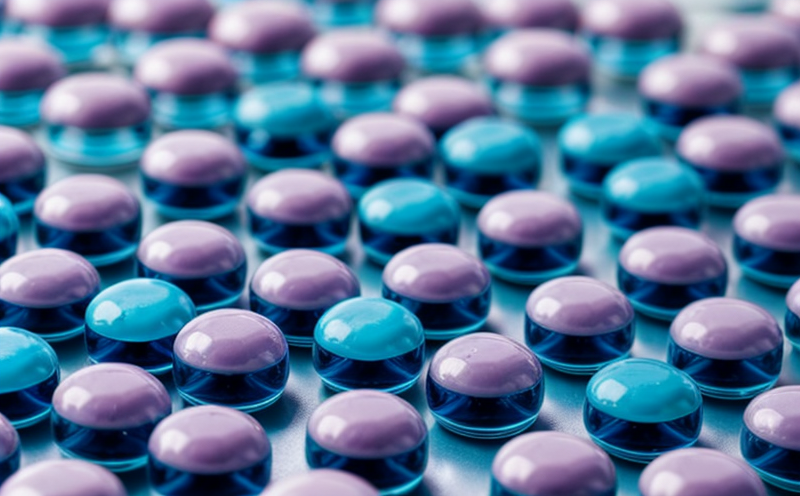EP 2.6.27 Microbial Contamination Testing of Cell-Based Products
The European Pharmacopoeia (Ph. Eur.) Chapter EP 2.6.27 provides specific requirements for the microbial testing of cell-based products used in biopharmaceutical manufacturing, ensuring their safety and quality. This service is crucial to safeguard patients from potential health risks associated with microbial contamination.
The integrity and functionality of cell-based products are paramount in pharmaceutical applications such as gene therapy, cell therapies, and monoclonal antibodies. The testing outlined in EP 2.6.27 ensures the purity of these products by identifying any microbial contaminants that might compromise their efficacy or safety. This standard requires a multi-step process involving sample collection, preparation, inoculation, incubation, and detection.
The first step involves collecting samples from the cell-based product using sterile techniques to avoid introducing any extraneous microorganisms. Once collected, these samples are prepared for testing by diluting them in appropriate media such as buffered peptone water or thioglycollate medium. After preparation, the samples are inoculated onto agar plates and incubated under controlled conditions that favor microbial growth.
The use of appropriate culture media is critical to ensure a wide range of microorganisms can be detected. Common media used include thiosulfate citrate bile salts sucrose agar (TCBS), which detects Salmonella spp., and MacConkey agar, which targets Gram-negative bacteria. These media not only enhance the visibility but also facilitate differentiation between various types of microbes.
Incubation periods vary based on the type of microorganism being targeted; typical incubations range from 24 to 72 hours at specific temperatures (e.g., 35°C for aerobic bacteria). During this time, any microbial contaminants present will grow and form visible colonies. The appearance and characteristics of these colonies are then carefully examined under a microscope or by other identification methods like mass spectrometry.
Once identified, the presence of any listed pathogens (e.g., E. coli, Pseudomonas aeruginosa) is documented according to Ph. Eur. guidelines. Any positive results indicate microbial contamination and necessitate further investigation into potential sources within the manufacturing process.
The importance of this testing cannot be overstated, especially given the increasing complexity of cell-based therapies. These treatments often involve highly sensitive cells that are susceptible to even minute levels of contamination. A single contaminating organism could lead to severe complications in patients undergoing treatment with such products.
In summary, EP 2.6.27 microbial testing is an indispensable part of ensuring the safety and efficacy of cell-based pharmaceuticals. By adhering strictly to these standards, laboratories can provide reliable data that supports regulatory compliance while maintaining patient safety.
Applied Standards
The primary standard governing EP 2.6.27 microbial contamination testing is the European Pharmacopoeia (Ph. Eur.), specifically Chapter EP 2.6.27. This chapter provides detailed protocols for the microbiological examination of cell-based products, including sample collection, preparation, and testing procedures.
Compliance with Ph. Eur. standards ensures that all tests conducted meet internationally recognized quality benchmarks. Additionally, this standard is complemented by other relevant guidelines such as those provided by the International Organization for Standardization (ISO) and the American Society for Testing and Materials (ASTM).
- ISO 17025: Laboratory requirements for the competence of calibration and testing laboratories.
- ASTM E2583-14: Standard practice for validation of microbiological methods used in biotechnology.
- EN ISO 9001:2015: Quality management systems requirements.
The combination of these standards ensures that the testing process is not only accurate but also replicable and verifiable, which are essential qualities for maintaining trust in pharmaceutical products.
Eurolab Advantages
At Eurolab, we pride ourselves on offering comprehensive microbiological testing services tailored to meet the stringent requirements of EP 2.6.27 and other relevant standards. Our team of experts brings decades of experience in biopharmaceutical quality assurance, ensuring that every test conducted is reliable, accurate, and compliant.
Our state-of-the-art facilities are equipped with advanced instrumentation and equipment, including high-resolution microscopes, automated colony counters, and real-time PCR systems for rapid identification of microbial contaminants. This allows us to provide quick turnaround times without compromising on quality.
We employ rigorous quality control measures throughout the testing process, from sample collection through final reporting. Our ISO 17025 accreditation guarantees that our laboratory practices meet the highest industry standards. Moreover, we offer ongoing training and professional development opportunities for our staff to stay current with advancements in microbiological techniques and methodologies.
Eurolab's commitment to excellence is reflected not only in our technical capabilities but also in our customer service. Our dedicated account managers work closely with clients to understand their specific needs and develop customized testing programs that align with their regulatory requirements and business goals.
Use Cases and Application Examples
- Gene Therapy Products: Ensuring the absence of microbial contaminants is critical for gene therapy products, which are often administered directly to patients. Any contamination could lead to severe adverse effects or even fatalities.
- Cell Therapies: In cell therapies where autologous cells are used, preventing cross-contamination with exogenous microorganisms ensures the integrity of the treatment and enhances patient safety.
- MonoClonal Antibodies: These biologic drugs must be free from microbial impurities to maintain their potency and efficacy. Any contamination can significantly reduce the drug's effectiveness.
- Bioengineered Vaccines: The production of bioengineered vaccines requires strict adherence to microbiological purity standards to ensure they are safe for human use.
In each of these applications, EP 2.6.27 microbial contamination testing plays a vital role in confirming the safety and quality of the final product. By following this stringent protocol, pharmaceutical manufacturers can demonstrate their commitment to producing high-quality biopharmaceuticals that meet regulatory standards.





